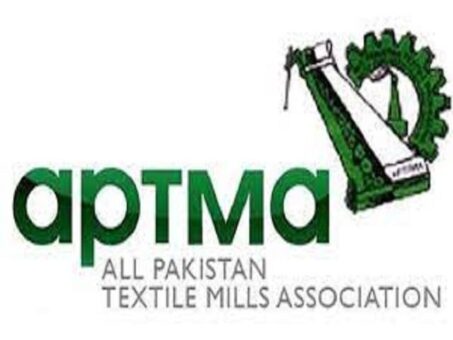KARACHI: All Pakistan Textile Mills Association (APTMA) has rejected the federal budget 2020/2021 saying that the budget has failed to address serious industry issues in the light of the worldwide Covid-19 created crisis.
This is likely to lead to large scale unemployment and closures and as the market dynamics have changed Post Covid, it said in a statement issued on Monday
Bold and direct steps were required to retain our export earnings and maintain employment in a shrinking world Market due to lack of demand especially textiles which constitute 60 percent of export earnings.
It said our Balance of Payments position is likely to worsen as a result of the lack of appreciation of the issues facing exports and the expected 20 percent drop in remittances (World Bank estimate) due to large scale layoffs in the Gulf countries and Saudi Arabia.
Resolution of followings is requested at earliest;
1. Provision of Regionally Competitive Energy Prices
Continuation of regionally competitive fixed electricity tariff at 7.5cents/KWh and $ 6.5 per MMbtu for RLNG/gas across the value chain to ensure competitive export pricing.
Non continuation of regionally competitive energy rates will lead to direct closure of around 30 percent of factories within six months.
Unless corrected, as of July 1st, 2020, exporting sectors will be charged Rs 24 / kwh as normal B3 industrial tariff instead of Rs 12 earlier and even if RLNG is continued at $ 6.5 /MMBTU this contrasts with $ 3.5 RLNG /Gas tariff for India and Bangladesh. Meanwhile Electricity Prices in India have seen a further drop of 16 percent over the last 2 months while currently averaging about 7.2 cents/kwh for Industry. Energy accounts for 35 percent of conversion costs in the Textile value chain and therefore competitive pricing of exports is very highly sensitive to Energy pricing.
It had been agreed that Rs 20 billion will be allocated for energy for use in maintaining 7.5 cents / kwh for electricity and $ 6.5 / MMBTU for RLNG/ Gas. The budget however only allocates Rs 10 billion for RLNG.
Competing countries are already poised to combat highly competitive market conditions through cheaper electricity and gas rates.
2. Zero Rating/ 17 percent GST
Continuation of 17 percent GST is not sustainable as by design GST refunds of 5 months remain in pipeline.
As a result Rs 20 billion per month has shifted from the coffers of the industry to FBR (amounts to Rs 100 billion plus which is in process at all times).
This has increased the cost of doing business by about 6 percent.
Sales tax exemption on imports through Bond, EOU & DTRE would be withdrawn immediately.
17 percent is a very high level incentive to cheat. A lower rate would;
a) Allow Proper Documentation
b) Increase FBR Revenue through wider application
c) Allow organized domestic retailers to compete in the 13 Billion dollars domestic textile market.
We therefore requested the government to restore zero rating or to reduce sales tax rate to 5 percent across the value chain.
3. 1.5 percent Turnover Tax/ Minimum Tax
This tax increases cost of exports by an average 5-6 percent as the tax is levied on the same goods multiple times as it passes through the value chain.
The Textile Industry works on very slim margins and turnover tax acts as an accelerator to early closure of mills.
Continuation of 1.5 percent turnover tax in a situation where there will be no profitability is completely unjustified.
4. MMF & Polyester Staple Fiber
There is 7 percent customs duty on the import of polyester staple fiber with total import expenses in the range of 20 percent including antidumping duty.
Polyester staple fibre is a raw material of the industry and as repeatedly committed by the government should not be subject to any duties.
More than 60 percent of world textile trade is in MMF materials and this duty protection given to obsolete plants in Pakistan is denying the Pakistani industry any chance to compete in this growing majority section internationally or domestically.
Any protection to domestic polyester plants may be given directly by the government and not at the cost of our country’s economic future.
5. DLTL
With refunds of approximately 5 percent due on $ 10 billion exports the quantum of DLTL due will be Rs 80 billion. This was also the amount requested for allocation by Ministry of Commerce.
The budget has allocated only Rs 10 billion for DLTL. DLTL is a calculation of government taxes component in the cost of exports and if this is not catered for will further weaken our export competiveness.
6. TUFF
Rs 4.5 billion are pending under TUFF scheme.
Whereas amount allocated in this budget for TUF scheme is only Rs 400 million.
The amounts have been due for the past 7 years and this sort of delay annuls industries’ faith in Government commitments.
7. New Textile Policy
Implementation of the in principle approved Textile Policy is required in true letter and spirit for Pakistan to maintain and increase employment and exports.
It may please be noted that without correction of these issues in the budget proposals, the industry will contract by 30-40 percent and well over one and half million people will lose their jobs.


